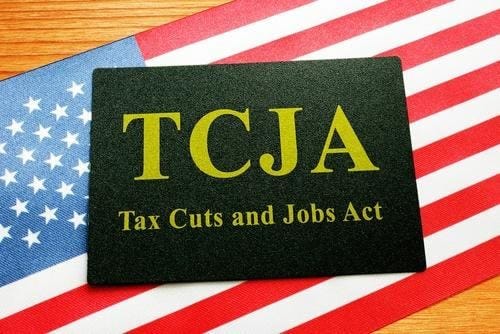Understanding the Implications of the TCJA Sunset Provisions
As we approach the twilight years of the 2017 Tax Cuts & Jobs Act (TCJA), both accountants and taxpayers are bracing for the expiring provisions that have reshaped the landscape of American taxation. The TCJA, known for its sweeping tax cuts and selective tax hikes, is set to see most of its changes sunset at the end of 2025. Notably, the significant reduction in the corporate tax rate to 21% stands as a permanent fixture, offering a continued benefit to corporations.
The TCJA has been a cornerstone of tax planning since its inception, despite the temporary upheavals caused by the 2020 CARES Act. The potential reversion to pre-TCJA law in 2026 poses a looming challenge, with the possibility of Congress enacting further tax law revisions adding to the uncertainty.
One key area of focus is the fate of the 20% qualified business income deduction (QBID), a provision that has leveled the playing field for pass-through entities (PTEs) such as LLCs/partnerships and S-Corps. With QBID set to sunset alongside other tax provisions, its extension remains a question mark for the 2025 Congress, especially if corporate tax rates remain unchanged.
The list of tax provisions set to expire includes adjustments to marginal tax rates, standard deductions, and itemized deductions. For instance, the TCJA’s lower marginal tax rates across all brackets will revert to their pre-TCJA levels, impacting taxpayers across all income levels. Similarly, the roughly doubled standard deduction will roll back to its previous figures, potentially altering the calculus for taxpayers who opt for standard over itemized deductions.
Another significant change on the horizon is the removal of the $10,000 cap on state and local taxes (SALT), which may shift taxpayer preference back towards itemizing deductions. Additionally, strategies like the SALT cap workaround for PTEs may also expire, depending on state-level legislation.
For traders eligible for trader tax status (TTS), the expiring TCJA provisions may have less impact due to their ability to deduct trading business expenses on Schedule C or through pass-through entity tax returns.
The sunset of TCJA provisions also affects more niche areas such as excess business losses (EBL) and net operating losses (NOLs), with implications for carryforwards and carrybacks that could influence business tax strategies.
Finally, the impending reduction in the unified estate and gift tax exemption amount could have significant consequences for estate planning. With the exemption set to decrease substantially from its 2024 level, individuals and families may need to reassess their estate strategies in light of potential tax changes.
As we edge closer to the fiscal cliff at the end of 2025, all eyes will be on Congress’s actions—or inactions—regarding these critical tax issues. The outcome of the November 2024 elections may offer early insights into the future direction of U.S. tax policy.






